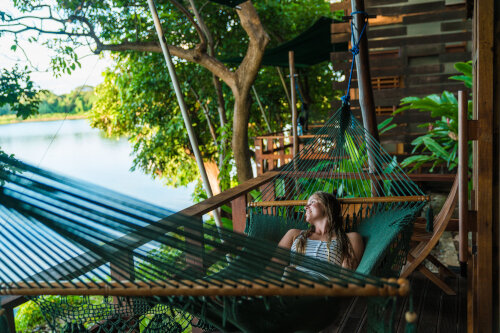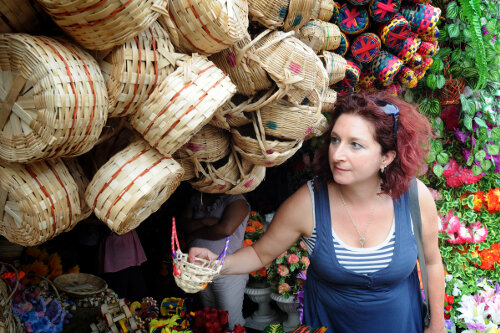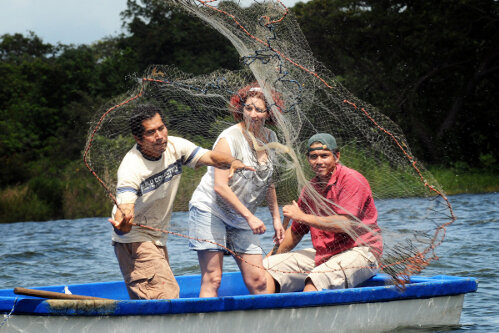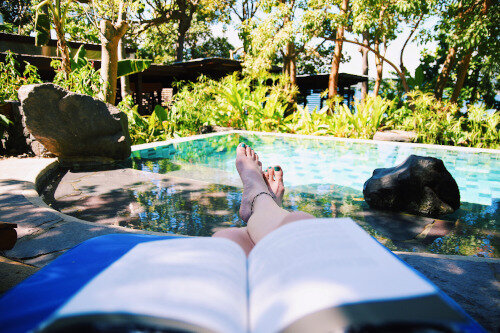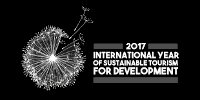We Can't Just Go Back To “Tourism As Usual”
/We need tourism to come back better. Better for the environment, better for communities, and most importantly better for all the people involved. The United Nations World Tourism Organization has called for a “responsible recovery of the tourism sector” in order to “balance the needs of people, the planet and prosperity.” We have a responsibility, and this is a unique opportunity. We have a chance of doing things more sustainably and creating a better model for future travel. It is up to us.
A blog kindly reproduced thanks to Hans Pfister, President and Co-Founder, The Cayuga Collection, including our partner in Nicaragua.
Why should we care about better tourism and responsible recovery?
The problems in recent years were all too obvious: overcrowded cities, over-tourism, environmental degradation, and excessive CO2 emissions.
These problems are not gone.
What we could do differently for a ‘New Normal’:
Seasonality: If you can, don’t travel in the peak season. By doing so, you’re contributing to a year-round economy and employment and take the pressure off sensitive ecosystems.
Beyond-the-Instagram tourism: Avoid overcrowded touristic destinations and try off-the-beaten-path alternatives. Try to experience, learn and connect.
Take your time: Don’t rush and just check off sights on your list. Staying longer in one destination allows for cutting down your carbon footprint (especially if you fly) along with creating a deeper connection with the local culture and people.
Quality vs. quantity: It is important that we as an industry don’t just focus on how many guests visit a destination. We need to focus on the (hopefully positive) impact they have on natural environments and local economies. [This one’s in our Earth Changers Manifesto]
Small is beautiful: Stay at locally owned and managed boutique hotels or lodges vs. large all-inclusive branded resorts.
Spread the tourism dollar in the community: Avoid “all-inclusive” offers. Eat out at restaurants that are not in your hotel, hire nature or culture guides to learn about local culture, flora, and fauna, take public transportation, and purchase souvenirs in locally-owned shops.
Single-use plastics: They had a strong comeback during the pandemic due to health concerns. Let’s make sure that they are not staying around in the vacation experience. Plastic has made a strong comeback on airlines, but also at restaurants and hotels around the world. Is this here to stay?
Leakage in Tourism
The best way to look at how tourism can be done better is “leakage rates”. It describes the percentage of money that is spent on a vacation that actually ends up leaving the country and going back to foreign-owned operators, airlines, hotels, etc. It is important for a tourist to understand that not all money spent on vacations helps local businesses and communities.
Leakage is more frequent in developing countries at an average of about 70%. Slowing leakage is one important way how we can make sure that tourism is better after this pandemic. The UN estimates that most all-inclusive packages result in 80% leakage and that import leakage (funds used to import foreign goods that tourists “demand” in their experience) for developing countries is between 40% and 50%.
Smaller locally owned hotels have leakage rates of about 10%. The Cayuga Collection did a study on this a few years ago together with the INCAE Business School in Costa Rica and confirmed that number.
At a conference in 2017, then Secretary-General of the United Nations World Tourism Organization (UNWTO), Taleb Rifai, called all-inclusive resorts “modern-day plantations“. He went on to say that “we cannot continue to build five-star hotels in three-star communities.”
What is next for tourism?
We want a “measured” return. Not just back to business as usual and doing the same things we did back in January/February 2020, but back to a better normal.
We want tourism to be part of the solution to the issues that our planet is facing; climate change, destruction of natural habitats, gender inequality, ignorance, discrimination, economic inequalities, and the potential next health crisis.
We need to take better care of people. Our staff, our communities and each other.
We need to decrease our dependency on industrial food production and still be able to feed everyone on this planet.
Here is what the Cayuga Collection are doing right now to be part of the solution:
Climate change: We continue to plant well over 500 trees every year and continue to protect the private nature reserves in which some of our hotels are located.
Our communities: We have made an extra-strong effort in the past months to hire back women in our operations. Female workers were 70% more likely to lose their job during the pandemic. We have made great progress not only in guest service positions but also with managers and nature guides.
Our team members: We have become more serious about our company doctor program understanding the importance of health. We have reactivated our career path program to continue to develop managers from line level positions. We continue to work with only locals, and that includes top management positions.
The culinary experience: Our supply chains have become even more local than before. Almost all ingredients are sourced from a 150-mile radius. We continue to develop our Dock to Dish Sustainable Seafood program and go organic when possible like with coffee and pineapples.
Pura Vida wellbeing: Early this year, we started to implement a program to improve the physical and mental health of our guests during their stay. But we found out very quickly that it is as equally important to take care of the well-being of our team members. So now we have regular yoga classes, beach walks and social experiences for our staff and have also improved their rest times and meals being served while on the job.
Will post-pandemic travellers be more conscious?
Will they care more about sustainability? Will we see a “better” or more responsible travel industry emerge? I certainly hope so and we work hard every day with our teams to make this happen.
But I still have some doubts. I am afraid that we will see a lot of “Roaring 20s” behavior for those that are eager to just get back out there to travel and party. This is understandable in some ways, but a lost opportunity in many others. We will continue to observe this recovery carefully. Stay tuned…
Let us know what you think! Like, share and comment!
